Townsville man Paddy McHugh is helping to bring camel racing to the Olympics and is set to stage part of a World Series Camel Racing event in Australia this year and next.
He is in the forefront of a campaign by Saudi Arabia to introduce the sport of camel racing to the world.
The Middle-Eastern country is preparing the groundwork to bid for a future Olympic Games, potentially in 2036, with camel racing as its demonstration sport and in the lead up wants to establish an annual World Camel Racing series held in different countries.
Late in November last year McHugh was in Greece, the birthplace of the Olympics for the fourth General Assembly of the International Camel Racing Federation (ICRF), chaired by Prince Fahd bin Jalawi bin Abdulaziz bin Musaed from Saudi Arabia.
With 63 countries represented he was the Australian delegate at the ICRF meeting – which also rebranded as the World Camelids Sports with the aim to promote camel racing internationally– with members of the International Olympic Committee (IOC) also invited.
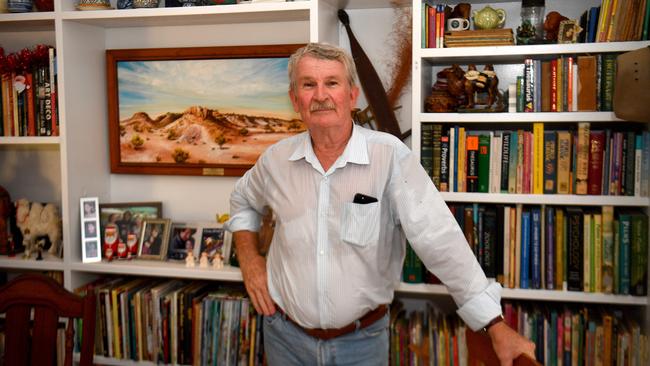
Camels are in his DNA and the sixty-six-year-old has been involved with breeding, racing, and exporting camels for almost 50 years and was the founder of the Boulia camel races.
He is president of Australia Camel Farm Pty Ltd which has exported camels to the UAE, Egypt, Saudi Arabia, Kuwait, China, Malaysia, Thailand, Brunei Belgium and the United States.
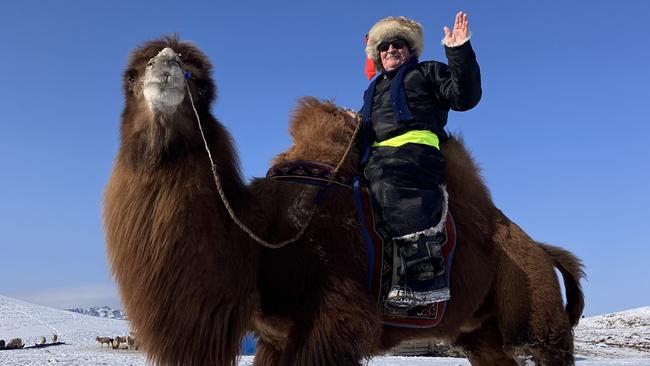
“I have been working with camels for 42 years since I was 17 when I walked part of the way from Alice Springs to Goulburn with my brother Greg with five camels, 30 donkeys and 17 horses,” Mr McHugh said.
A year later his brother succumbed to leukaemia aged 24 but for McHugh his future was now forever linked with camels.
“Not long after I retraced Burke and Wills with 10 camels starting at the Dig Tree to The Gulf and from The Gulf across to Townsville,” he said.
In the mid ’90s Mr McHugh was catching wild camels in the Australian Outback for export, primarily to the Middle East.
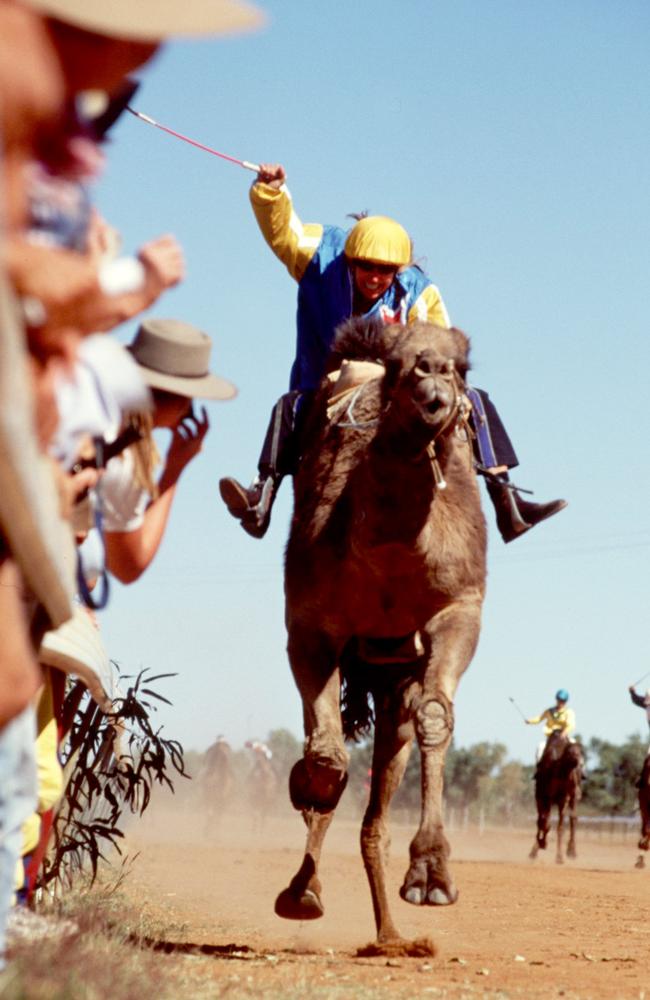
Witnessing first-hand how big the camel industry was in the Middle East where the top racing and beauty camels sell for millions of dollars gave him the idea to start camel racing in the Queensland Outback
McHugh shopped the concept to several outback regions and eventually Boulia accepted the challenge and the annual camel races are now one of the drawcards on the outback tourism calendar.
“Virginia, my wife, and I ran that for five years from 1997 and then handed it back to the community and they still run it to this day,” Mr McHugh said.
Australia has the largest wild herd of camels in the world with estimates of up to one million camels rooming the outback from Queensland, Northern Territory, Western Australia and South Australia.
Between 1840 and 1907 up to 20,000 camels were imported into Australia, mainly from India, and used for early exploration and as beasts of burden to service isolated communities across the outback.
But the rise of the motor vehicles and trains saw the demise of camels for transport and in the 1920s thousands were set free and a Northern Territory Government website states camels are found on 37 per cent of the mainland.
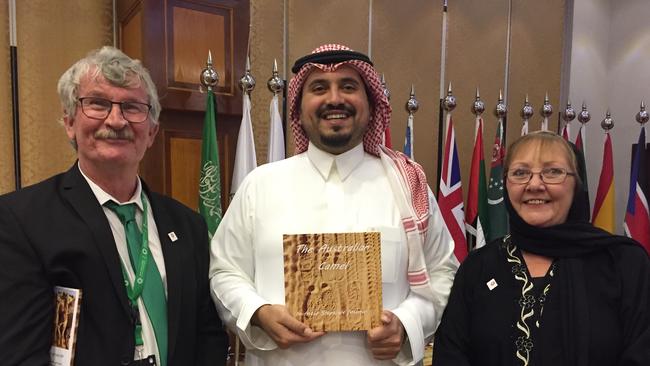
Since the 80s McHugh has been a fierce advocate of transforming this natural animal resource into a productive commodity for both the animal’s meat and its milk – regarded as one of the original superfoods – and for clearing valuable grazing land of weeds.
But as an introduced animal to Australia, wild camels are regards as a feral which destroys pasture and for drinking dry waterholes needed for livestock and control measures have included culling.
Each year thousands of wild camels are shot by farmers and in periodic government sponsored culls and left to rot in the bush. A practice which is adherent to McHugh.
“The top camel in the Middle East was worth $20 million US before it died, and ours are worth a .223 bullet. I mean, it’s just ludicrous,” he said.
For the past 40 years he has campaigned tirelessly to establish a viable camel industry in Australia, trying to establish camel-dedicated abattoirs and to establish a milking herd.
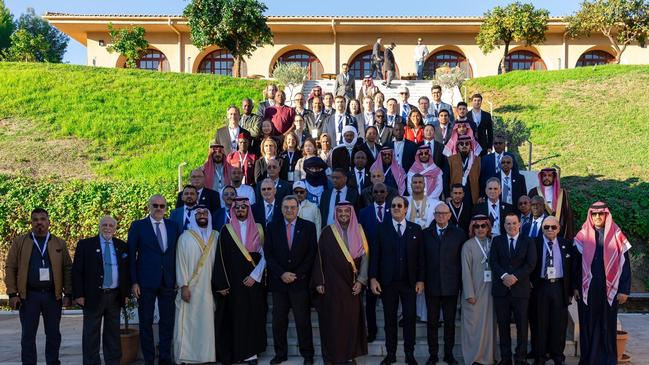
He sees the advent of the World Series Camel Racing in Australia as the means to finally change public opinion of camels as a feral animal that needs to be culled, to one where camels are the basis of a multimillion-dollar industry.
“Camels in Australia have a terrible reputation as a feral and cantankerous animal, for all the wrong reasons.
“It’s got a terrible name, and we need to change that. We’ve got a million plus wild camels out there and we have to work out what to do with them. There’s been some attempts at meat works. But we need to lift the image of this animal in this country,” he said.
“I’m not saying camel racing will save the day, but it may well change the image and make it a little bit more prestigious. It’s a lot of fun for people to be involved. I went to the Boulia Camel Races for the first time in 10 years the other day, and I couldn’t believe it. The crowds were just having a fabulous time,” McHugh said.
After the IRCF meeting in Greece, McHugh was asked by the head of the Saudi Arabian Olympic committee Prince Fahd to run World Series Camel racing in Australia in 2025/26
“Now that Australia is no longer an observer nation with this organisation we are in a prime position to advance camel racing in this country and position ourselves for great things to happen,” he said.
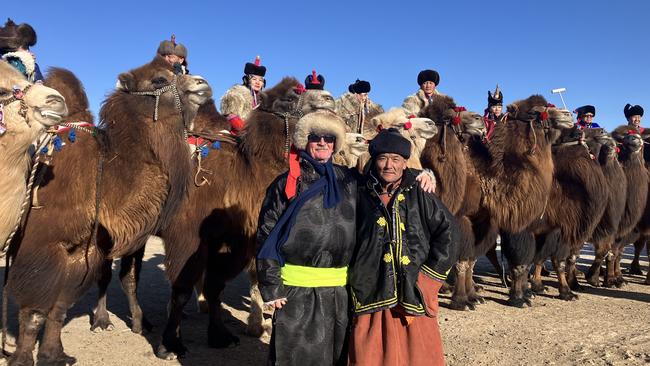
McHugh was first contacted in 2019 about representing Australia at the ICRF and went to the organisation’s second meeting held in Saudi Arabia, with his wife Virginia.
“The meeting was held at Taif, just near Mecca, where they have the Crown Prince Camel Festival there every year, and they tied this meeting of ICRF into the into the Crown Prince’s races.”
He said the annual racing event in Saudi Arabia had a prize pool of $24 million Australian and featured more than 5000 camels in an endless series of races over different distances.
“I’ve been to Saudi twice in 2024 on camel industry business, on the Royal Family’s invitation to go there and be a guest of them at the other camel races and other events.”
He said the ICRF meeting held in Greece in November last year was very formal.
“There were delegates from all over Africa, and very high level IOC people came to this one as well,” he said.
“So they’re (Saudi Arabia) are getting runs on the board. They’ve now in the pyramid of getting to the Olympic family. They’re halfway up the ladder of getting there now.
“When Saudi does bid for the Olympics, and they will definitely bid for the Olympics, there’s no question about that, they will have camel racing as their display sport. It’ll be a modified version,” McHugh said.
Camel racing is the main sport not just in Saudi Arabia but in many Middle-Eastern countries and is also popular in parts of Africa.
But it is not just racing camels that attract attention in the Middle East. Beauty camel competitions are also hugely popular and the a top beauty camel can cost millions.
“Beauty camels can be worth $2, $3, $4 to $5m easily, if they’re the right type,” McHugh said.
“I went to one beauty competition in Qatar and there was 20,000 camels there. The sand dunes were covered with camels, and the money you see that they’d be spent on camels is crazy.”
He said the region’s most expensive beauty camel was owned by Sheik Sultan out of Abu Dhabi.
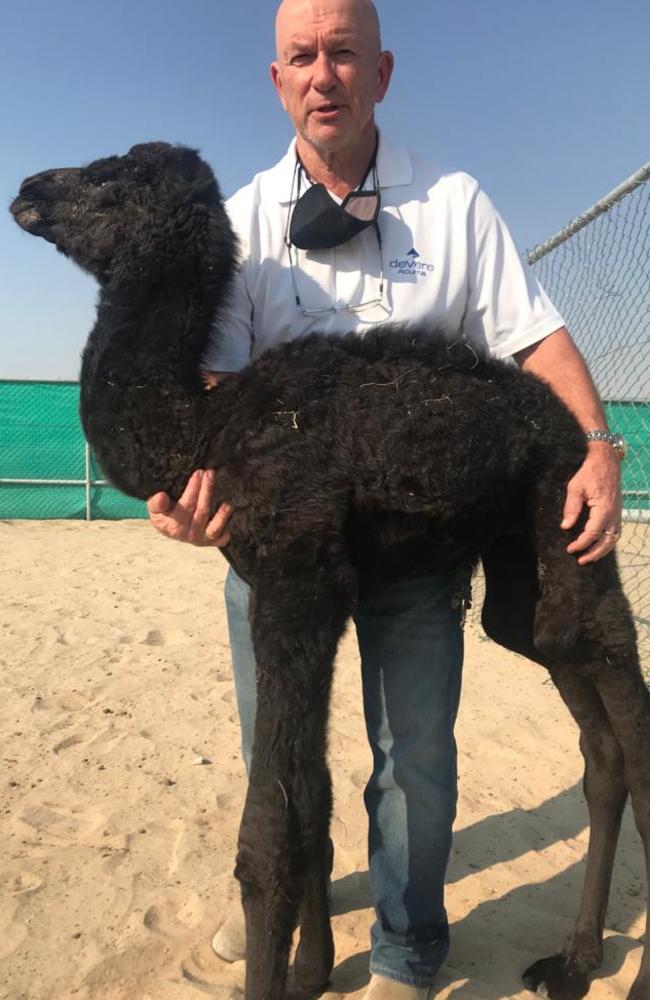
“Just before it died, Saudi Arabia were going to buy it for USD$20m.
“But Sheik Sultan said, ‘no, I don’t want to sell it’, and then it died, and they then cut its testicles off and did some skin scrapings and shoved it in the deep freeze for 15 years,
“Now it’s got 10 identical babies through cloning. Camels are one of the few animals in the world that clone really easily, and they’ve bought this camel back to life,” he said.
Since coming back from Greece, McHugh has been busy formulating how the World Series Camel Racing would work in Australia and potential locations.
“We’ll either use Boulia, Bedourie or then maybe do another big event, say at the Sunshine Coast, to finish it off.
“Then the winners of all those would then go to Saudi Arabia to compete at the Crown Prince Camel Festival. But there’s quite a few countries involved. Mongolia is going to do it. A lot of the African countries are right into it too,” McHugh said.
He said the prize money for the Australian leg of the World Series Camel Racing would be very attractive.
“I think there’s at least $100,000 plus, which not a lot in horse racing terms. But the biggest prize money now is Boulia which has $45,000 prize money.
“The Saudis are throwing a lot of money at a lot of different sports at the moment and I’m damned if I’m going to sit by and be hypocritical and not take advantage of the whole thing.
“If it does come our way and there’s a benefit to the Australian camel, then we’ll jump in and try our best to make something of it. Just imagine if we could get where there’s a million dollars, or a half a million dollars prize money in camel racing in Australia.
“All of a sudden, the animals would be valued at something, rather than be shot out all the time. The whole dynamic of it would change tremendously.”
Camels are his passion and he remains optimistic about their future.
“I’ve had a fabulous time with camels. I’ve done a whole range of things, from doing 20,000 kilometres worth of walks, to running safaris on the beach, to live export, running events and to selling camels all over the world.
“I’ve met the richest and the poorest of the people through camels and travelled to 60 countries,” McHugh said.

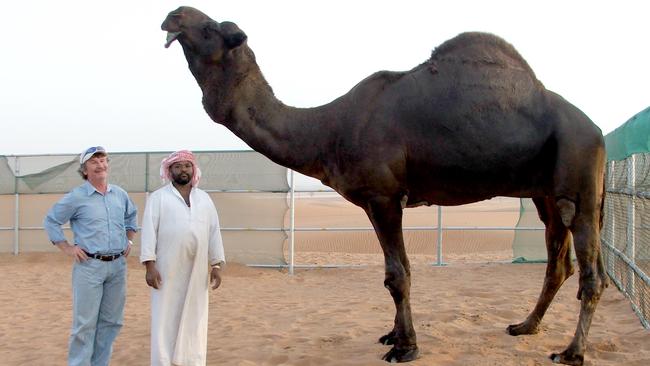
Add your comment to this story
To join the conversation, please log in. Don't have an account? Register
Join the conversation, you are commenting as Logout
WATCH: Police probe into ‘severely malnourished’ man’s death
Detectives have revealed a person of interest as part of an investigation into the death of a North Queensland man who was non-verbal and largely housebound. Police have released video of his awful living conditions.
Vote now: Help crown Townsville’s cutest baby of 2024
More than 100 babies have been entered to take out the title of Townsville’s cutest bub born in 2024. Check out the cute contestants here >